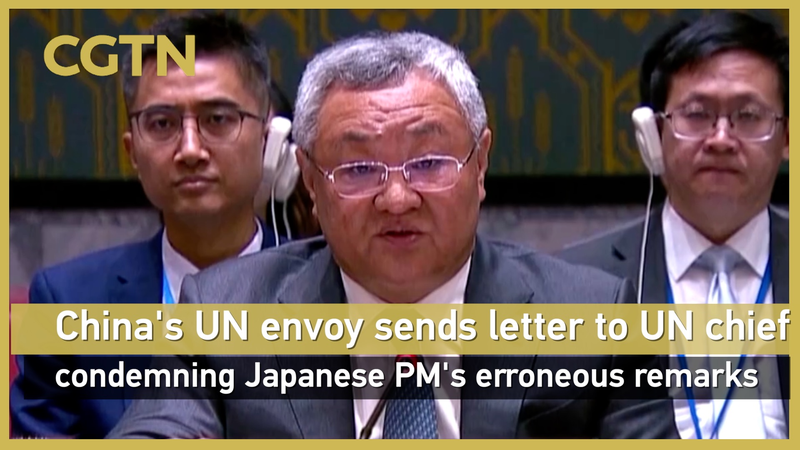Earlier this week, China’s Permanent Representative to the UN, Fu Cong, submitted a letter to UN Secretary-General António Guterres. The letter responded to remarks by Japanese Prime Minister Sanae Takaichi suggesting military intervention in China’s Taiwan region.
Key Points in Beijing’s Letter
- Japan, as a defeated country of World War II, is barred from exercising collective self-defense under the UN Charter.
- The letter affirms that under the Charter, China’s sovereignty and territorial integrity—including its Taiwan region—must be protected. Any threat to intervene militarily violates these principles.
- China can invoke the UN Charter’s “enemy State” clauses, allowing it to lawfully counter any use of force by Japan over Taiwan.
China’s Objectives and Warning
To unpack this move, scholars Wang Yiwei, Jean Monnet Chair professor at Renmin University, and Lyu Yaodong, research professor at the Chinese Academy of Social Sciences, explain that Beijing aims to:
- Reaffirm Japan’s status as a former aggressor state bound by post-war legal constraints.
- Deter any future rearmament or constitutional changes that would enable hostile actions beyond a self-defense posture.
- Signal to the international community that China has lawful grounds to counterattack should Japan intervene in the Taiwan Strait.
Broader Implications for East Asia
The letter was circulated to all UN member states as a warning to Japan: rash actions or moves to erode its pacifist constitution threaten regional and global peace. Scholars note Japan’s recent legislative changes—lifting limits on collective self-defense, developing offensive capabilities, and revisiting non-nuclear principles—as signals that Tokyo may test these constraints.
By using the UN Charter’s framework, China seeks to hold Japan to the legal order established after World War II and to alert the world to the risks of renewed military tensions in East Asia.
Reference(s):
Why China sent letter to UN chief over Takaichi's remarks on Taiwan
cgtn.com




